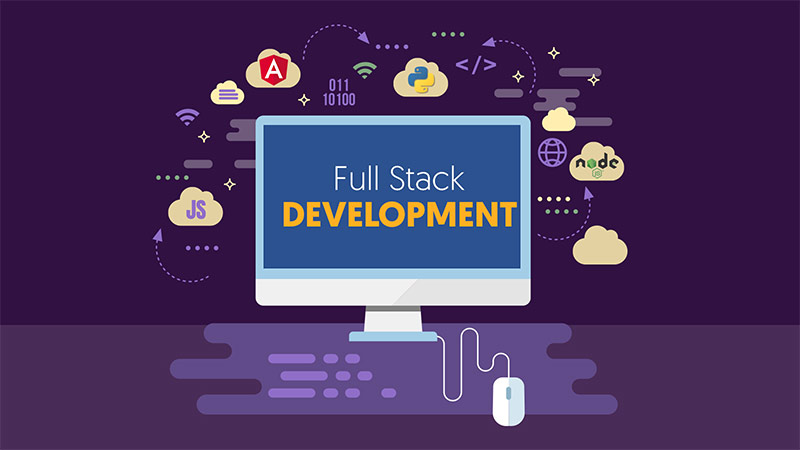
Exploring the Role of Full Stack Development in Modern Software Engineering
In the dynamic realm of software development, full stack development has emerged as a comprehensive approach that empowers developers to tackle both frontend and backend aspects of web applications. With its holistic perspective and versatile skill set, full stack development is reshaping the landscape of modern software engineering, enabling teams to build robust, scalable, and user-centric applications with efficiency and agility.
“ Fullstack development is a journey of continuous learning, where each challenge is an opportunity to expand your skillset. ”
During this program
During a fullstack development course, you can expect to learn a wide range of skills and technologies related to both frontend and backend development. Here's an overview of what you might cover during such a course:
- HTML, CSS, and JavaScript
- Frontend Frameworks
- Backend Technologies
- Databases
- APIs and RESTful Services
- Version Control
At its core, full stack development refers to the practice of working on both the client-side (frontend) and server-side (backend) components of a web application. This entails proficiency in a diverse array of technologies, frameworks, and tools spanning multiple layers of the software stack. Full stack developers possess a deep understanding of frontend languages such as HTML, CSS, and JavaScript, along with expertise in backend technologies like Node.js, Python, Ruby on Rails, or Java.
One of the key advantages of full stack development lies in its versatility and adaptability. By encompassing both frontend and backend domains, full stack developers have a holistic understanding of the entire software development lifecycle, from concept and design to implementation and deployment. This broad skill set enables them to work across different layers of the application stack, bridging the gap between frontend and backend teams and facilitating seamless communication and collaboration.
Moreover, full stack development promotes efficiency and agility in software development workflows. With a single developer capable of handling diverse aspects of the application, teams can streamline development processes, reduce dependencies, and accelerate time-to-market. Full stack developers possess the flexibility to switch between frontend and backend tasks as needed, addressing bottlenecks and driving continuous progress throughout the development cycle. Furthermore, full stack development fosters innovation and creativity by encouraging developers to explore diverse technologies and approaches. With exposure to a wide range of tools and frameworks, full stack developers have the freedom to experiment, iterate, and optimize solutions to meet evolving business requirements and user needs. This interdisciplinary approach to development encourages cross-pollination of ideas and fosters a culture of continuous learning and improvement. In addition to technical proficiency, full stack developers also excel in problem-solving and critical thinking. By understanding the underlying architecture and functionality of both frontend and backend systems, they are better equipped to diagnose and troubleshoot issues, optimize performance, and implement robust solutions. This holistic perspective enables full stack developers to design more cohesive and efficient applications, delivering seamless user experiences across devices and platforms.
Looking ahead, the demand for full stack developers is expected to continue rising as organizations seek versatile and skilled professionals capable of driving end-to-end development initiatives. As technology landscapes evolve and new paradigms emerge, full stack developers will play a pivotal role in harnessing emerging technologies, embracing best practices, and delivering innovative solutions that meet the ever-changing needs of users and businesses alike.
In conclusion, full stack development represents a holistic approach to software engineering that empowers developers to build comprehensive, scalable, and user-centric applications. By combining proficiency in frontend and backend technologies with problem-solving skills and creativity, full stack developers are poised to shape the future of software development, driving innovation, efficiency, and agility in the digital age.